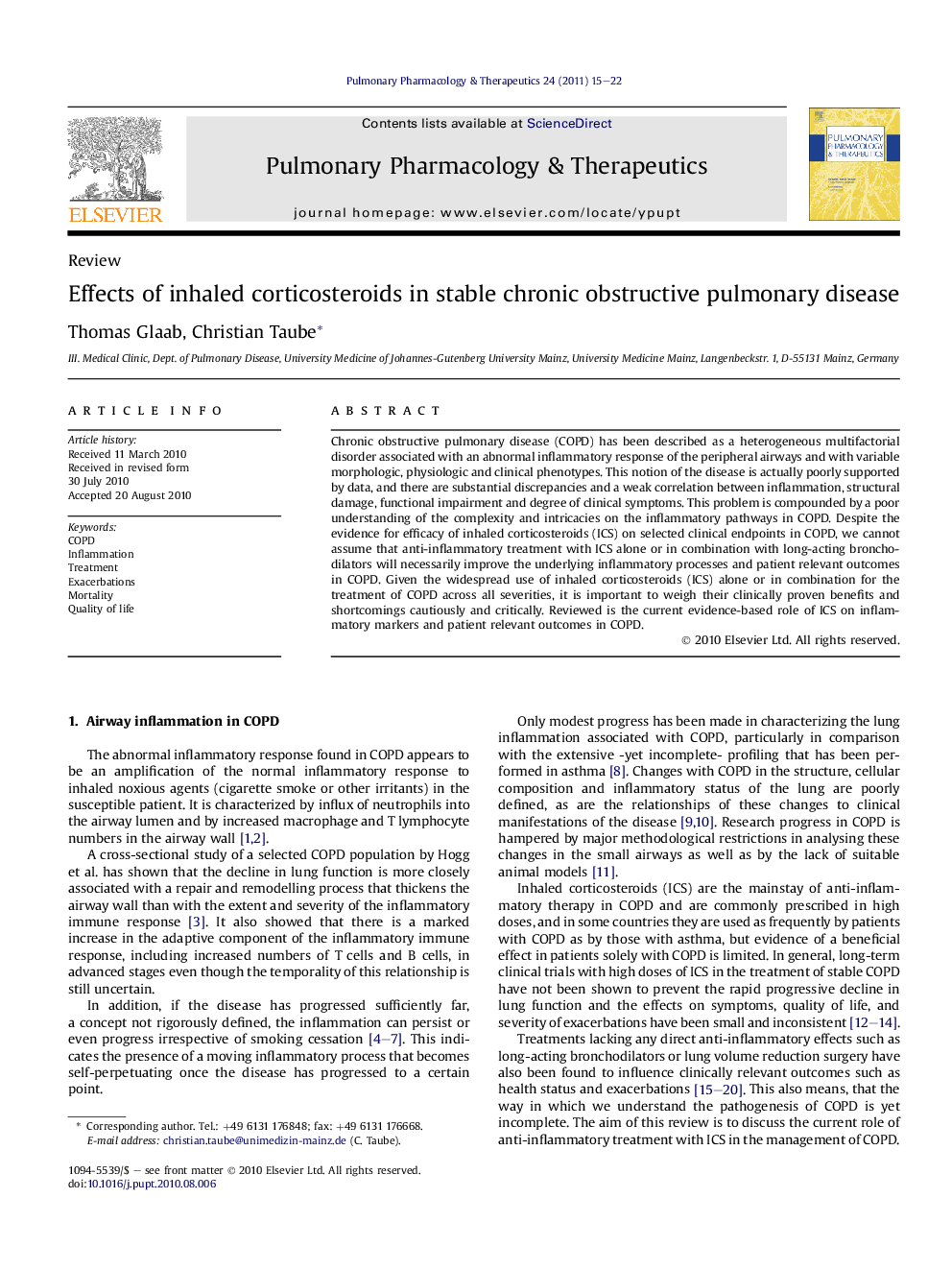| Article ID | Journal | Published Year | Pages | File Type |
|---|---|---|---|---|
| 2567498 | Pulmonary Pharmacology & Therapeutics | 2011 | 8 Pages |
Chronic obstructive pulmonary disease (COPD) has been described as a heterogeneous multifactorial disorder associated with an abnormal inflammatory response of the peripheral airways and with variable morphologic, physiologic and clinical phenotypes. This notion of the disease is actually poorly supported by data, and there are substantial discrepancies and a weak correlation between inflammation, structural damage, functional impairment and degree of clinical symptoms. This problem is compounded by a poor understanding of the complexity and intricacies on the inflammatory pathways in COPD. Despite the evidence for efficacy of inhaled corticosteroids (ICS) on selected clinical endpoints in COPD, we cannot assume that anti-inflammatory treatment with ICS alone or in combination with long-acting bronchodilators will necessarily improve the underlying inflammatory processes and patient relevant outcomes in COPD. Given the widespread use of inhaled corticosteroids (ICS) alone or in combination for the treatment of COPD across all severities, it is important to weigh their clinically proven benefits and shortcomings cautiously and critically. Reviewed is the current evidence-based role of ICS on inflammatory markers and patient relevant outcomes in COPD.
